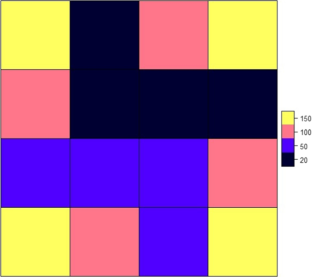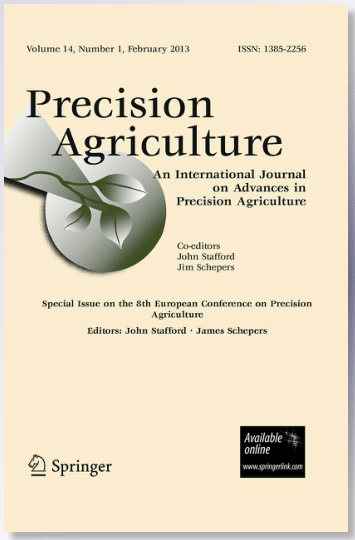来源期刊
期刊介绍:
Precision Agriculture promotes the most innovative results coming from the research in the field of precision agriculture. It provides an effective forum for disseminating original and fundamental research and experience in the rapidly advancing area of precision farming.
There are many topics in the field of precision agriculture; therefore, the topics that are addressed include, but are not limited to:
Natural Resources Variability: Soil and landscape variability, digital elevation models, soil mapping, geostatistics, geographic information systems, microclimate, weather forecasting, remote sensing, management units, scale, etc.
Managing Variability: Sampling techniques, site-specific nutrient and crop protection chemical recommendation, crop quality, tillage, seed density, seed variety, yield mapping, remote sensing, record keeping systems, data interpretation and use, crops (corn, wheat, sugar beets, potatoes, peanut, cotton, vegetables, etc.), management scale, etc.
Engineering Technology: Computers, positioning systems, DGPS, machinery, tillage, planting, nutrient and crop protection implements, manure, irrigation, fertigation, yield monitor and mapping, soil physical and chemical characteristic sensors, weed/pest mapping, etc.
Profitability: MEY, net returns, BMPs, optimum recommendations, crop quality, technology cost, sustainability, social impacts, marketing, cooperatives, farm scale, crop type, etc.
Environment: Nutrient, crop protection chemicals, sediments, leaching, runoff, practices, field, watershed, on/off farm, artificial drainage, ground water, surface water, etc.
Technology Transfer: Skill needs, education, training, outreach, methods, surveys, agri-business, producers, distance education, Internet, simulations models, decision support systems, expert systems, on-farm experimentation, partnerships, quality of rural life, etc.
期刊最新文献
Accuracy and robustness of a plant-level cabbage yield prediction system generated by assimilating UAV-based remote sensing data into a crop simulation model
Correction to: On-farm experimentation of precision agriculture for differential seed and fertilizer management in semi-arid rainfed zones
A low cost sensor to improve surface irrigation management
On-farm experimentation of precision agriculture for differential seed and fertilizer management in semi-arid rainfed zones
Relevance of NDVI, soil apparent electrical conductivity and topography for variable rate irrigation zoning in an olive grove



